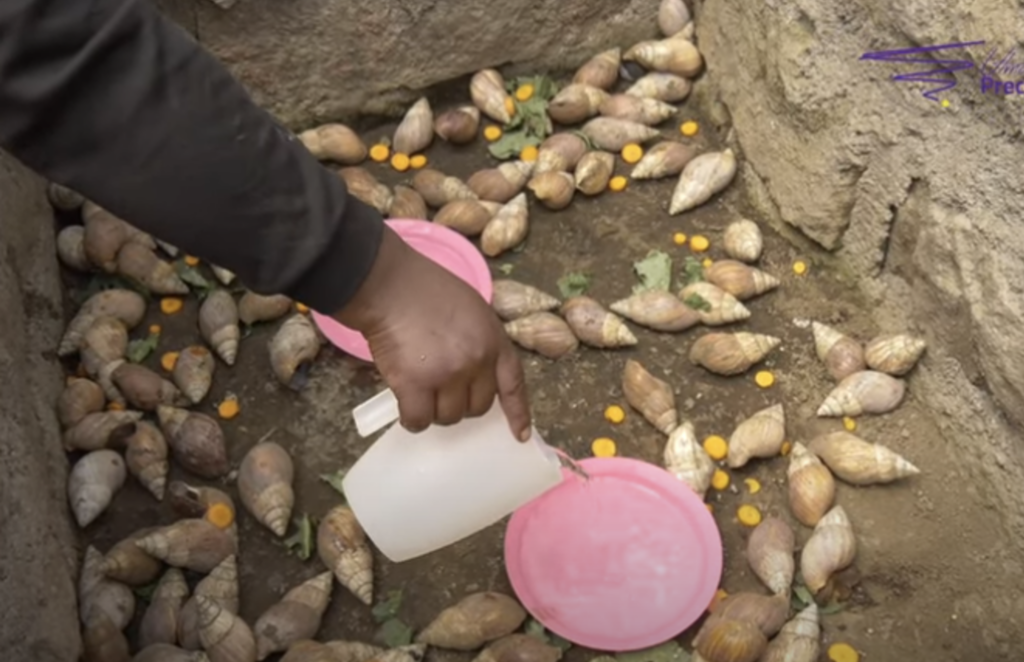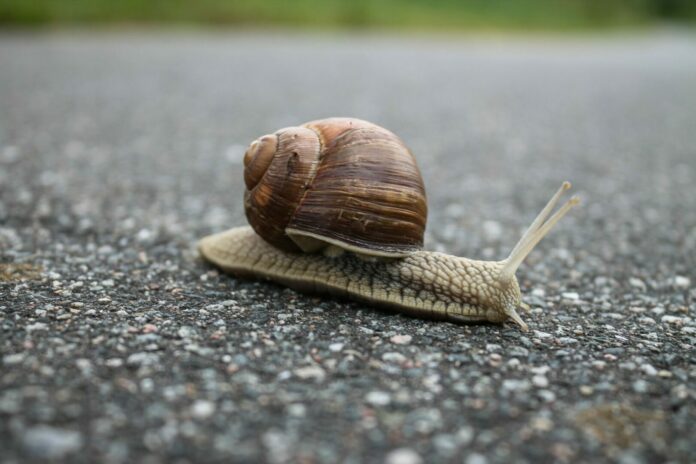Wangui Waweru is the owner of the Gold Dust Snail Farm located in Nakuru.
Her fascination with mollusks started in 2017 when she consumed snail meat unknowingly. Despite feeling squeamish at first, Wangui loved the delicacy. She decided to learn about snails and how they are reared.
Consequently, she traveled to Uganda, where she found a farmer who reared snails for a living. She later traveled to Kigali for additional knowledge on snail farming.
Snails in Kenya.
How Rosemary Odinga cracked snail farming business in Kenya
Wangui says that the value of snails as pets, food, and a source of income is mostly unknown in Kenya.
Needless to say, when she started her snail farm in Nakuru, she became a pariah in her community and was even accused of witchcraft. Most people had never heard that snails could be consumed, let alone reared.
According to Waweru, snails are a common delicacy in Asia, West Africa, and South Africa. In Kenya, snails are consumed mainly by foreigners from these countries. However, she says that Kenyans are slowly accepting snails as food.
Snails are a major source of white meat. Additionally, they are rich in vitamins B12, B16, and B18. On her farm, the animals are organically reared.
Source of Income
As a source of income, Wangui says snails are very valuable. Firstly, she earns from selling snail meat, which can sell for up to Ksh 7 000 a kilo. Secondly, she says that snail bi-products are very much in demand, especially snail slime.
“The slime is used to make beauty products, and it’s very expensive,”
says Wangui.
Snail cavalier is even more expensive, and a kilogram can sell for as much as 2000 dollars in Europe and Asia. The farmer advises those complaining about unemployment in the country to try snail farming.
“If you sell a kilo of snail cavalier, you’ll be well off than most employed people,”
says Wangui.
She says snail shells are crushed as a source of calcium for animal feed. Additionally, they can be used for decoration.
Value Addition

Wangui says that snail slime is used to make face masks, scrubbers, and beauty soaps. The farmer makes her own beauty products, including laundry soap from snail slime. She tried giving her products for free in her community, and she says the response was 100% positive.
She is currently waiting for a certification from KEBS before launching her products in the market.
“You don’t have to be a farmer of snails to earn from them. You can buy the slime, make your products and sell them to the community,”
she says.
Expenses
The farmer says that snails consume little food. Their diet consists of kale, carrots, calcium, and water. Overfeeding them can cause them to die of too much protein in their bodies, so you have to skip a day after feeding them.
“The income from snails is very substantial compared to what I spend feeding them. You can grow the food from a small kitchen garden,” says Waweru.
Startup Capital
The farmer says she invested Ksh 250 000 in starting her snail farm. However, she says that Ksh 40 000 is enough to launch a snail farming business. You’ll first need to purchase breeder snails, which cost Ksh 1600 a kilo. Wangui says you can start with 20 kg of breeders as they are manageable.
Structures will cost you approximately KSH 5 000. Finally, you can set aside Ksh 5000 for training to rear the snails.
Conclusion
To become a snail farmer, Wambui says you’ll need to be passionate about the business. You’ll also need to have the proper knowledge, which you can get from attending training. Finally, you’ll need a permit from Kenya Wildlife Services.











